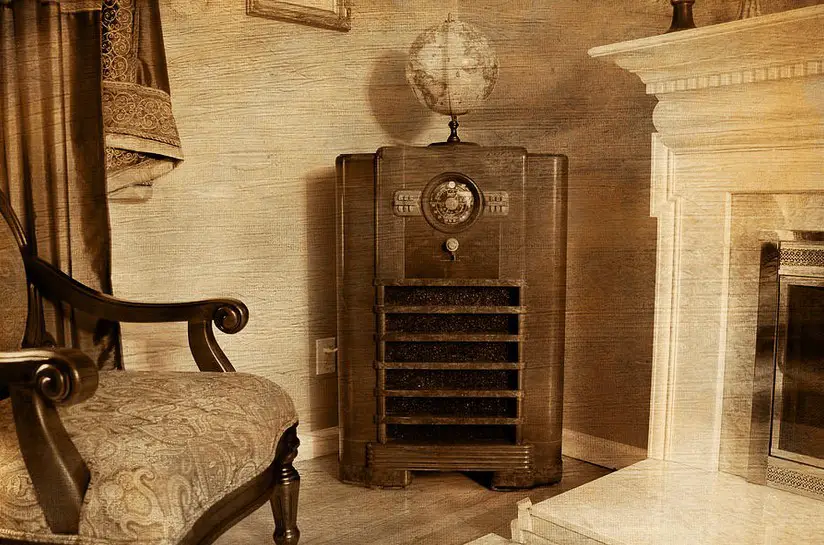When I was growing up my father knew a man whose hobby was to listen in to other people’s conversations on a radio you could get, but which I believe was illegal. Using this radio, it was possible to listen in on police conversations. He’d know before anyone else about accidents and domestic incidents, deaths and other awfulness. In this short story, likewise, a family thinks they are buying an ordinary radio, but what they get instead is a faulty appliance which — almost supernaturally — plays for them whatever is going on in their neighbours’ houses.
John Cheever wrote “The Enormous Radio” in 1947, where few could predict the advent of the Internet in the new century. But because the themes revolve around knowing other people’s business and how this knowledge affects you, The Enormous Radio reads as surprisingly modern.
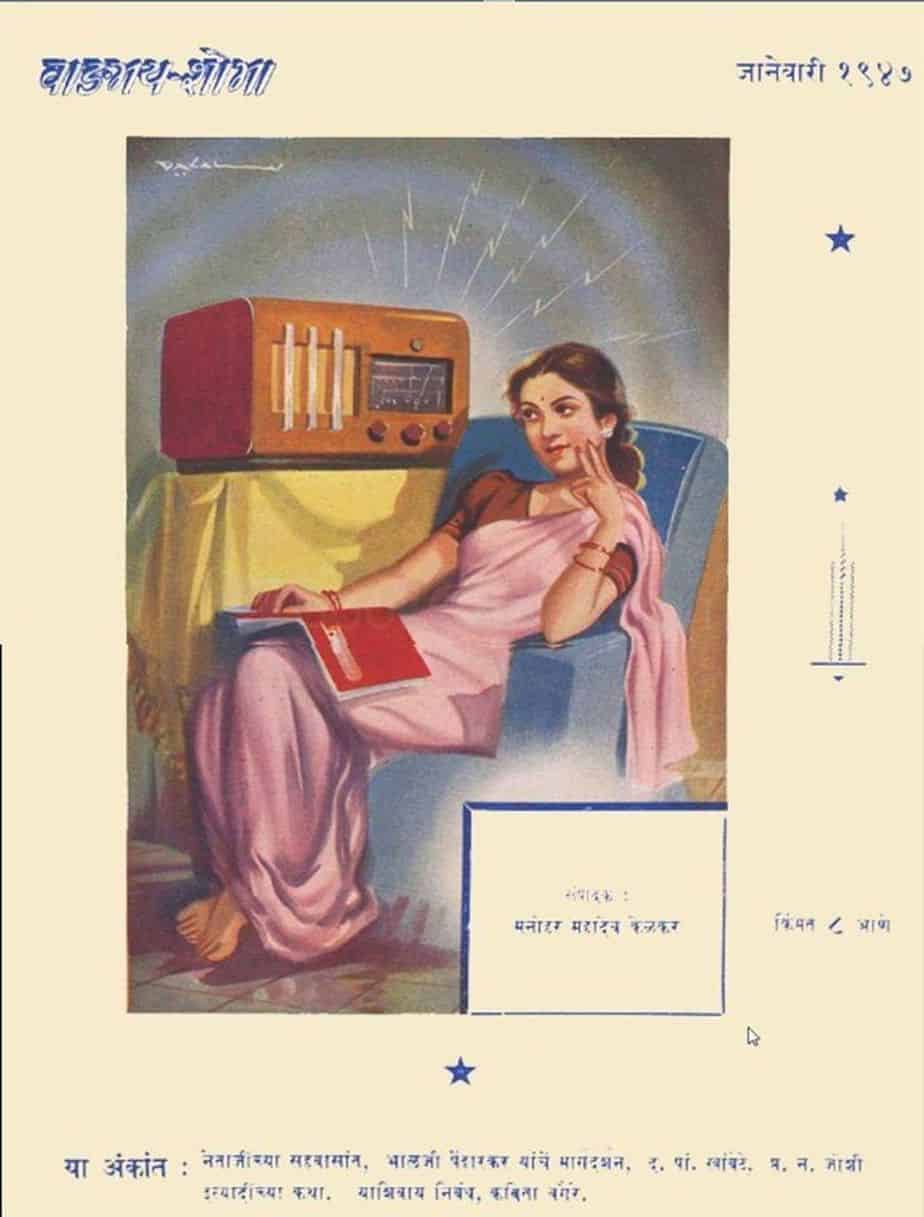
Hear The Enormous Radio read by Nathan Englander here.
This story has been described as an example of ‘Domestic Gothic’ literature:
Domestic Gothic fiction may be identified by its uneasy representation of the historical and socioeconomic developments known as the “domestic ideal.” The concept of “domesticity” goes beyond the mere occupation of the physical domestic space and encompasses more than household servicing as women’s work. Rather, it is a wholly ideological construct relating to the interpretation, as well as the use, of the domestic space. Domesticity emerged as a concept in the mid-eighteenth century, alongside the modernizing forces of the Industrial Revolution and the Enlightenment. As cottage industry gave way to larger-scale factory production, the nature of the home itself changed. For many, there was a separation of home from commercial premises and many women were removed from the world of remunerative employment altogether. As the domestic ideal became more influential, claustration within the domestic sphere and the possession of appropriate “domestic” qualities became requirements for female respectability. Meanwhile, traditional family relationships underwent radical change. Romantic ideas of companionate marriage and sentimentalized parent–child relationships, and also the development of the nuclear family, helped to create a concept of the home as a place presided over by a “domestic” woman, in which these newly defined relationships might be enjoyed.
Blackwell Reference Online
In ‘Domestic Gothic’ stories, the house becomes the place of trauma rather than the castle.
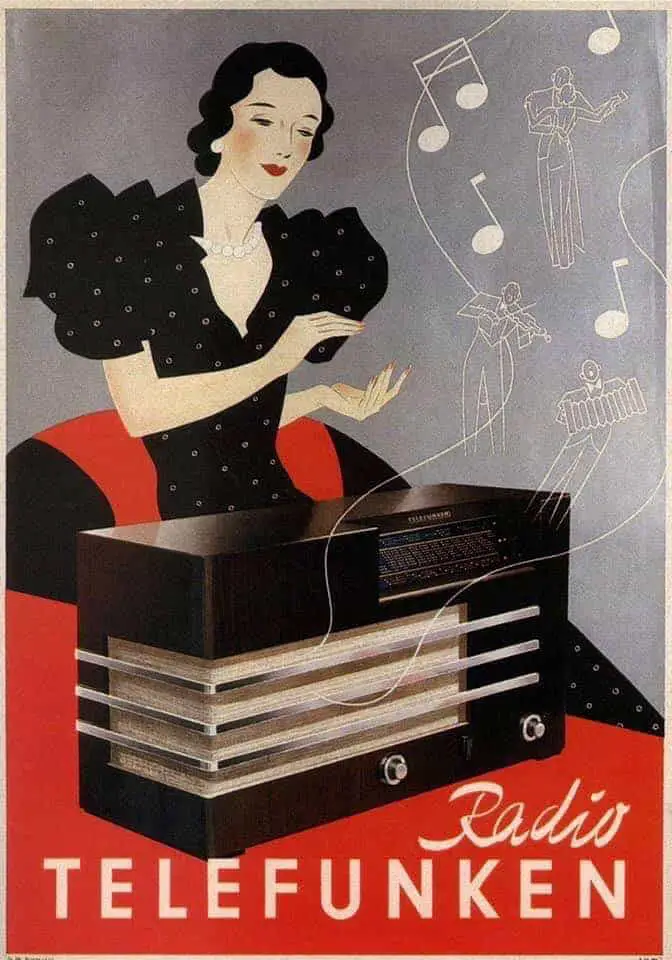
WHAT HAPPENS IN “THE ENORMOUS RADIO”
The sinister power of many of his early stories entails an identification with criminality. […] In “The Enormous Radio,” the wife of a Sutton Place couple introduced as “the kind of people who seem to strike that satisfactory average of income, endeavor, and respectability that is reached by the statistical reports in college alumni bulletins” turns out, in her husband’s furious accusations, to be guilty of stealing her sister’s inheritance and going off to have an abortion as coolly as if she were going to Nassau.
John Updike, The New Yorker
The reader is first given a character study of a statistically average couple living in Manhattan in the late 1940s. The only thing that sets them apart from all of their friends is their interest in ‘serious music’. When their radio gives up the ghost, the husband buys a new one. He has paid a lot for this radio, but it’s not working properly. Instead of playing music as it should, the Westcotts find that they are tuned in to the conversations and arguments of their neighbours. Mrs Westcott finds she can’t stop listening to it. One day she realises that there is domestic violence going on in the apartment of a neighbour. She asks her husband to go help. The husband insists that it’s none of their business. Eventually he blows up at his wife and the reader learns that even a statistically average couple has their own deep, dark secrets. Just as the Westcotts are privy to the darknesses of their neighbours, the reader is now privy to the darkness of this fictional couple. As soon as the worst has been said between the couple, the radio fixes itself; they are now listening to the news and the weather.
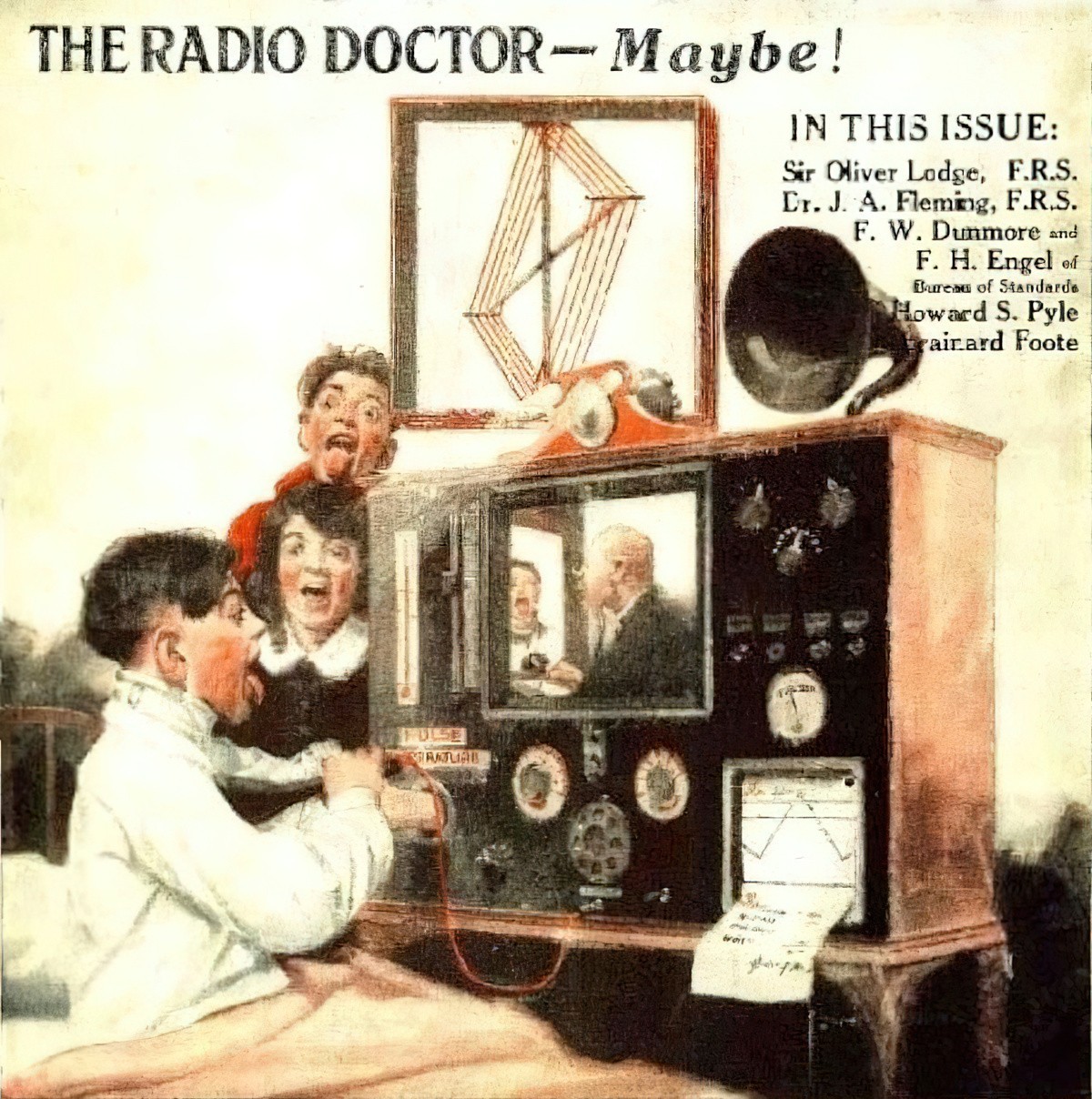
SETTING OF “THE ENORMOUS RADIO”
Place
Jim and Irene Westcott live on the twelfth floor of an apartment house near Sutton Place. Cheever’s New York stories often star characters who are not native to New York, but we don’t know how long the Westcotts have lived in New York. In any case, they hope someday to live in Westchester. (The reader is expected to know that this is in New York — I expect Cheever wrote this story for readers of The New Yorker.) These days, Sutton Place is known as York Avenue, and is on the East Side of Manhattan.
Time
Published in 1947, the setting is around this time.
Unemployment was at a low 3.9% after the second World War, and America is just about to enter a golden period, but Jim does not feel this. He is frustrated that he’s not doing better. Any worries about death and world peace have been supplanted by a generalised anxiety now that the war is over. Jim worries about his financial position even though he is employed and has life insurance, yet realistically, there’s nothing more he can do to give himself peace:
‘We’ve got to start cutting down,’ Jim said. ‘We’ve got to think of the children. To be perfectly frank with you, I worry about money a great deal. I’m not at all sure of the future. No one is. If anything should happen to me, there’s the insurance, but that wouldn’t go very far today. I’ve worked awfully hard to give you and the children a comfortable life,’ he said bitterly. ‘I don’t like to see all of my energies, all of my youth, wasted in fur coats and radios and slipcovers and—’
Milieu
This was a time when people more regularly had their appliances fixed before buying expensive replacements. Though this is not particularly important to the story, it’s worth noting because Jim is without the knowledge to fix their old one, and is therefore a bit cranky about having spent so much on a new, faulty radio.
The other notable thing about money is that it is all earned by the husband, who gives his wife an allowance. This is Jim’s money; he ‘buys things’ for his wife and she must use it at his approval. This wouldn’t have been the case in all 1940s households — sometimes the wife gave the husband an allowance — but this is the state of affairs that can arise when mothers aren’t accepted into the workforce.
‘Four hundred dollars is a good deal more than I can afford,’ he went on. ‘I wanted to get something that you’d enjoy. It’s the last extravagance we’ll be able to indulge in this year. I see that you haven’t paid your clothing bills yet. I saw them on your dressing table.’ He looked directly at her. ‘Why did you tell me you’d paid them? Why did you lie to me?’ […] ‘You’ve got to learn to handle the money I give you a little more intelligently, Irene,’ he said.
He then goes on to accuse his wife of ‘apprehensiveness’ when she worries the neighbours might hear them arguing.
Family planning has now entered the public consciousness, and although the topic of abortion is still somewhat taboo, it is nothing like what it was back then, when the main role of women in a predominantly Judeo-Christian country were expected to go forth and procreate, at all costs. To actively choose the size of one’s own family was radical for a woman.
“The Enormous Radio” Soundtrack
CHARACTERS IN “THE ENORMOUS RADIO”
The story opens with a character study, with emphasis on how ordinary this couple is for their milieu.
Jim and Irene Westcott were the kind of people who seem to strike that satisfactory average of income, endeavor, and respectability that is reached by the stastistical reports in college alumni bulletins.
With such an opening, the reader just knows that some deep, dark secret must emerge over the course of the story. After all, unless these characters are narrators or viewpoint characters, fictional people must never be boring. Otherwise they wouldn’t be fit for the subject of a story. But the narrator in this story is independent and unseen.
Jim Westcott — Educated at Andover (25 miles north of Boston). Andover, often linked with Exeter, is often understood symbolically as an “elite New England prep school,” connoting privilege. Jim is just starting to acknowledge his own middle-age (he’s 37), and the fact that he hoped he’d be even further ahead than he is now. Cheever says plenty about his class by pointing out that neither of the Westcotts know anything about the mechanics of a radio. Instead, their monied privilege allows them to go out and buy a new one.
Irene Westcott — This couple has aspirations of being slightly more upper-class than they are. These aspirations are conveyed by the detail that Irene wears coats made of ‘fitch skins’ (polecat), hoping they’ll pass as mink. Irene is the true star of this story because it is Irene who undergoes the major character transformation. At the beginning of the story she is kidding herself that she is a nice, respectable middle-class lady without sordid secrets. By the end of the story she has come face-to-face with who she really is, because her husband has listed each of her most shameful acts.
While there are many other characters in this story, they are no more than names with a few accompanying, often sordid, details. Jim and Irene are very much the main characters in this two-person play.
THEME IN “THE ENORMOUS RADIO”
Along with Torch Song and Clancy in the Tower of Babel, The Enormous Radio has themes of displacement, imprisonment, and divorce. Critics often categorise these kinds of stories by Cheever as ‘urban’ or ‘New York’ stories.
Even the most average and ordinary-seeming people harbour darkness and secrets. No one’s life is fully on show for others.
Irene’s life was nearly as simple and sheltered as it appeared to be, and the forthright and sometimes brutal language that came from the loudspeaker that morning astonished and troubled her.
[…]
‘Oh, don’t, don’t, don’t,’ she cried. ‘Life is too terrible, too sordid and awful. But we’ve never been like that, have we, darling? Have we? I mean, we’ve always been good and decent and loving to one another, haven’t we? And we have two children, two beautiful children. Our lives aren’t sordid, are they, darling? Are they?’
This is close-third-person point of view, describing how Irene sums herself up after listening in on her neighbours’ lives. But at the end of the story, the reader learns that her life is not really all that simple and sheltered.
Knowledge does not equal happiness. Personal happiness may involve a degree of wilful blindness. Irene, in particular, was happier before the radio entered the house because she was ignorant of what was going on in nearby apartments. She realises there’s nothing she can do about the abusive marriage of nearby residents, and that she’s not quite as happy as the Sweeneys’ nurse, who sings constantly.
‘You know you don’t have to listen to this sort of thing,’ [Jim] said. He strode into the living room and turned the switch. ‘It’s indecent,’ he said. ‘It’s like looking in windows. You know you don’t have to listen to this sort of thing. You can turn it off.’
“For Christ’s sake, Kathy,’ he said, ‘do you always have to play the piano when I get home?’ The music stopped abruptly. ‘It’s the only chance I have,’ a woman said. ‘I’m at the office all day.’ He added something obscene about an upright piano, and slammed a door.
TECHNIQUES OF NOTE IN “THE ENORMOUS RADIO”
Symbolism
What does the radio symbolise? Despite the title, there are actually two radios in this story: the old and the new. The old radio breaks down. The replacement radio offers sordid insight into other people’s lives. Similarly, the ‘old Irene’ has her genteel façade broken down, and her sense of self is replaced by a sordid self-knowledge.
[Irene] was struck at once with the physical ugliness of the large gumwood cabinet. Irene was proud of her living room, she had chosen its furnishings sand colors as carefully as she chose her clothes, and now it seemed to her that the new radio stood among her intimate possessions like an aggressive intruder. She was confounded by the number of dials and switches on the instrument panel, and she studied them thoroughly before she put the plug into a wall socket and turned the radio n. The dials flooded with a malevolent green light, and in the distance she heard the music of a piano quintet.
Irene is unsettled by the new radio to the extent that she leaves the house, goes out for a walk and comes home only after the maid has dealt with the children. She is running away from the truth (about herself).
Magic Realism in “The Enormous Radio”
While not quite ‘fantasy’, the way the radio suddenly rights itself right after a terrible argument suggests it is an almost sentient being with malevolent intent. There is nothing else at all magical in the story, with its recognisable setting and fairly ordinary characters. It’s impressive how gently and realistically Cheever introduces this magic; at first the radio broadcasts static, which gradually becomes recognisable as vacuum cleaners and elevators, and eventually turns into voices, which are at first mistaken for a radio play. The characters are as confused as the reader about this. The reader must be gently introduced to the idea of a bit of magic in an otherwise realistic setting, just as the characters must.
STORY SPECS OF “THE ENORMOUS RADIO”
First published in the New Yorker in May 1947
This story forms the title of Cheever’s second short story collection The Enormous Radio, published 1953
4,400 words in length, the climax (the argument) occurs just one paragraph before the end of the story. (In other words, the denouement is one single paragraph.)
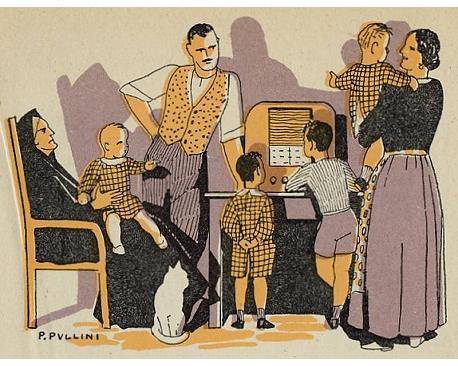
COMPARE “THE ENORMOUS RADIO” WITH
Domestic Gothic literature began with Walpole. Matthew Gregory Lewis, William Godwin and Anne Radcliffe turned it into a tradition. Domestic Gothic Fiction is a distinctly American (and sometimes German) sort of writing. For more of this you might read some of Poe’s tales (for example The Black Cat), the novels of William Faulkner (1897-1962), or some of Henry James’s (1843-1916) fiction.
See also: American Gothic Fiction: An Introduction
Englander (who reads The Enormous Radio for The New Yorker) finds this story quite unlike any other of Cheever’s, and compares it to your typical episode of The Twilight Zone, or to one of Kafka’s short stories. Whereas I use the term ‘magical realism’, Englander calls it almost sci-fi.
eNotes compares the character of Irene to Nathaniel Hawthorne’s Young Goodman Brown. Both characters have ‘entered the dark forest of moral ambiguity and emerged a different person’.
A Manhattan couple buy a radio, and enjoy it until it begins picking up the conversations of neighbors throughout their building. The wife becomes obsessive, the husband guilt-ridden. It threatens to destroy their marriage and is returned. As with “The Swimmer” — because the other elements in the story are so prosaic, so local and identifiable — it is very hard to read the story as intending the reader to believe in a magical radio. But also like “The Swimmer,” the events of the story are too sharply defined and internally consistent to be written off as mistake or delusion.
THE MILLIONS
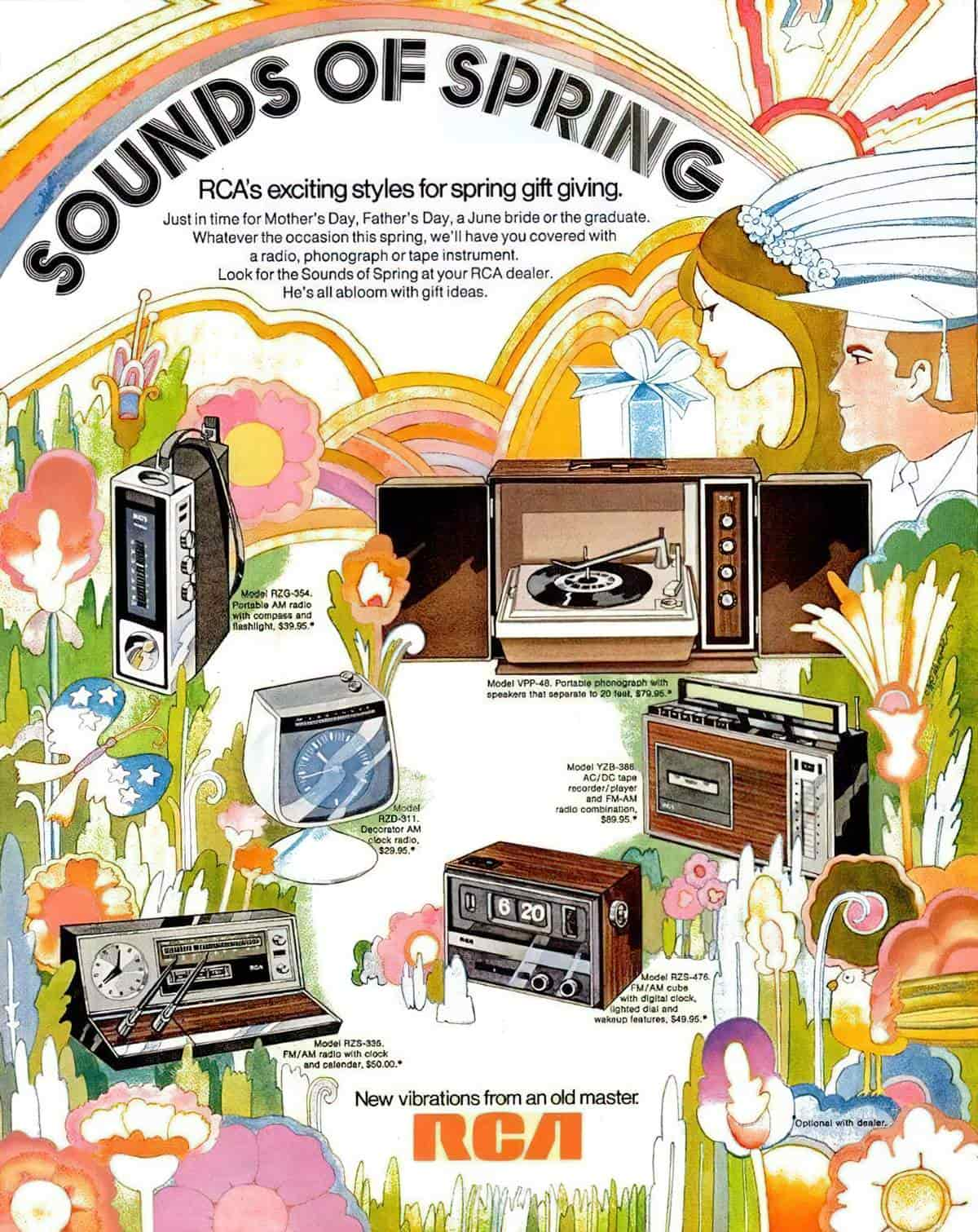
WRITE YOUR OWN
- Have you ever overheard someone else’s conversation and felt it was too private, that you shouldn’t really be listening? Or perhaps someone told you something that felt too personal. How did this knowledge affect you?
- Has anyone ever found out something personal about you that you didn’t want them to know?
- These days we learn a lot about other people’s lives not via wayward radios but via social media and Facebook stalking etc. Have you ever been involved in that?
